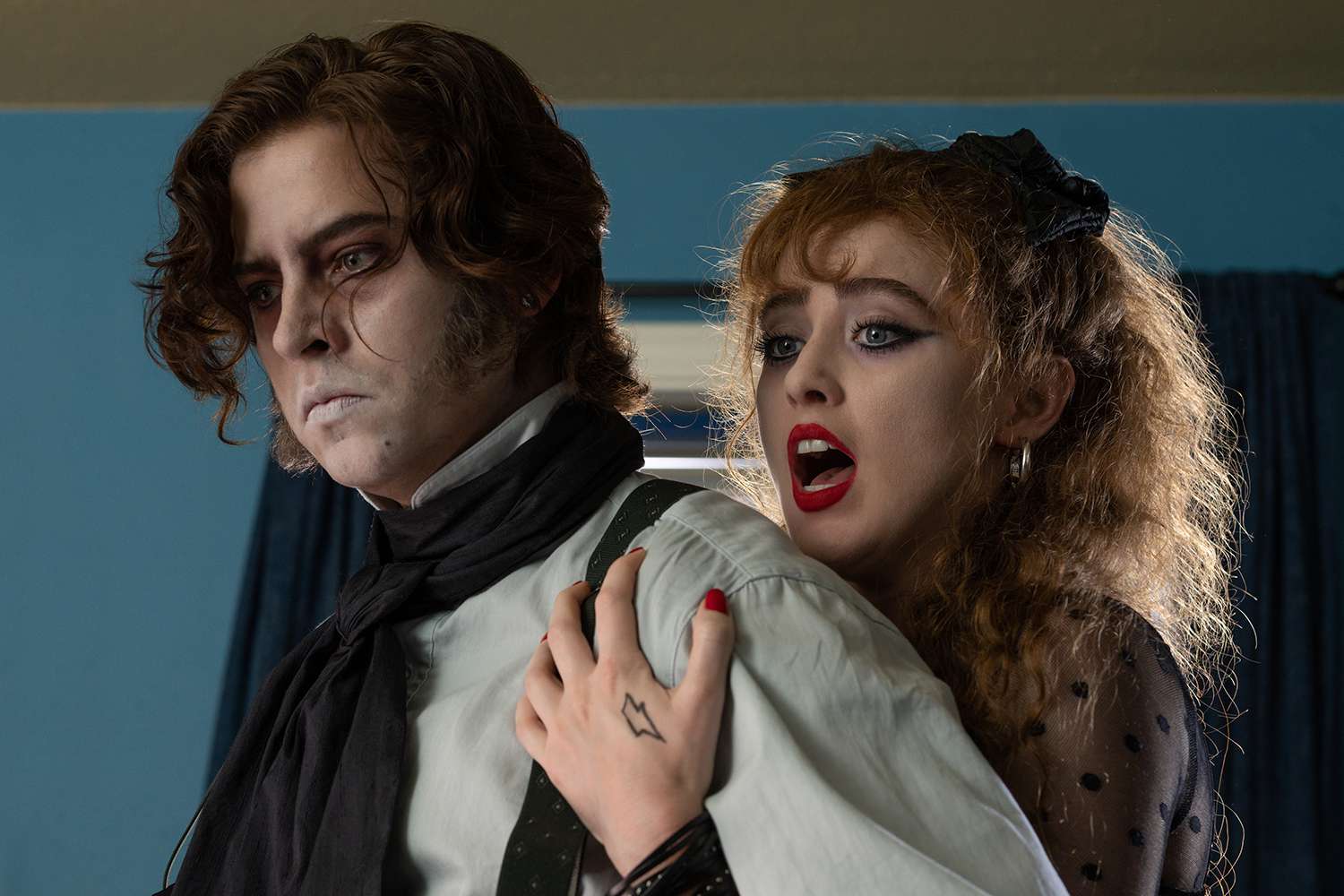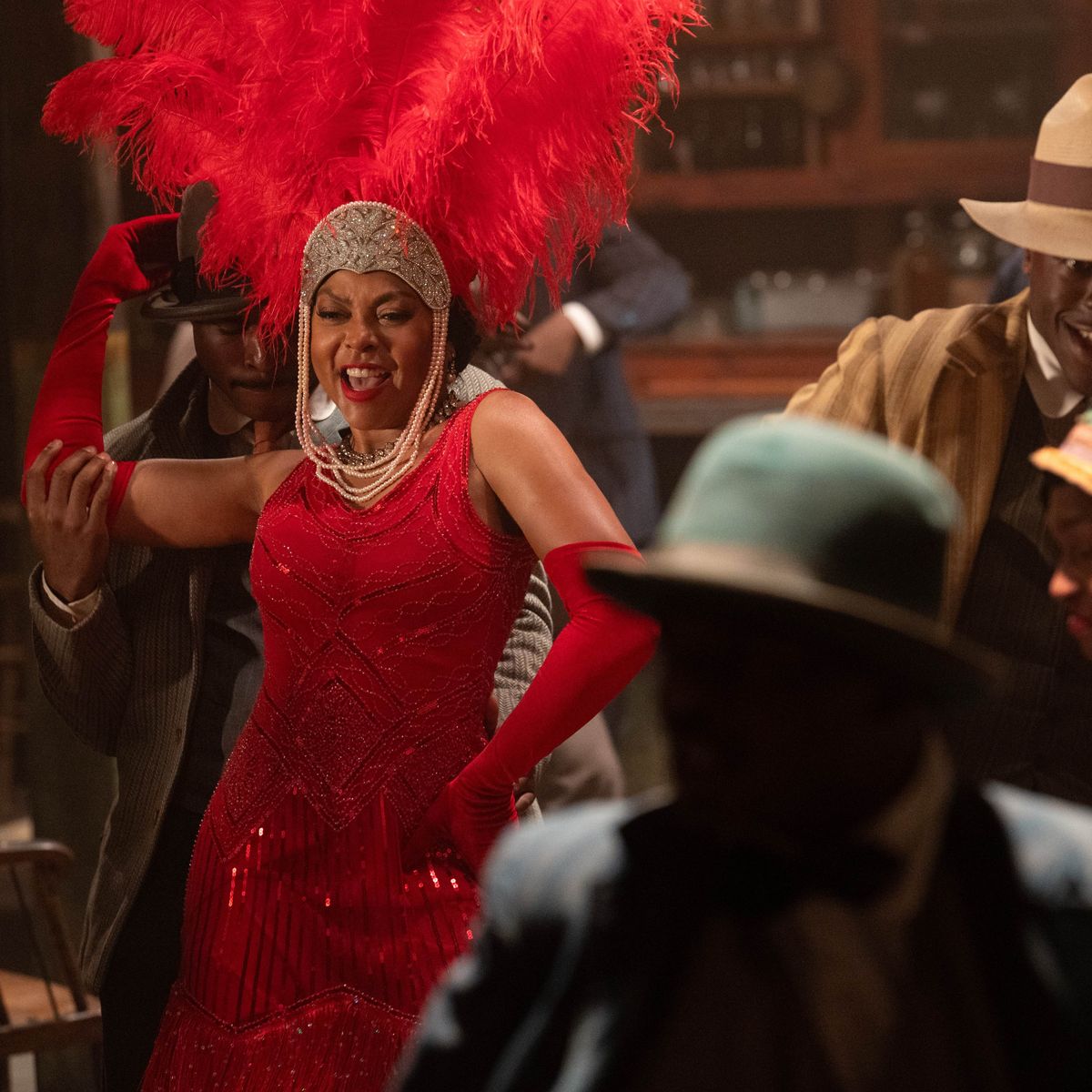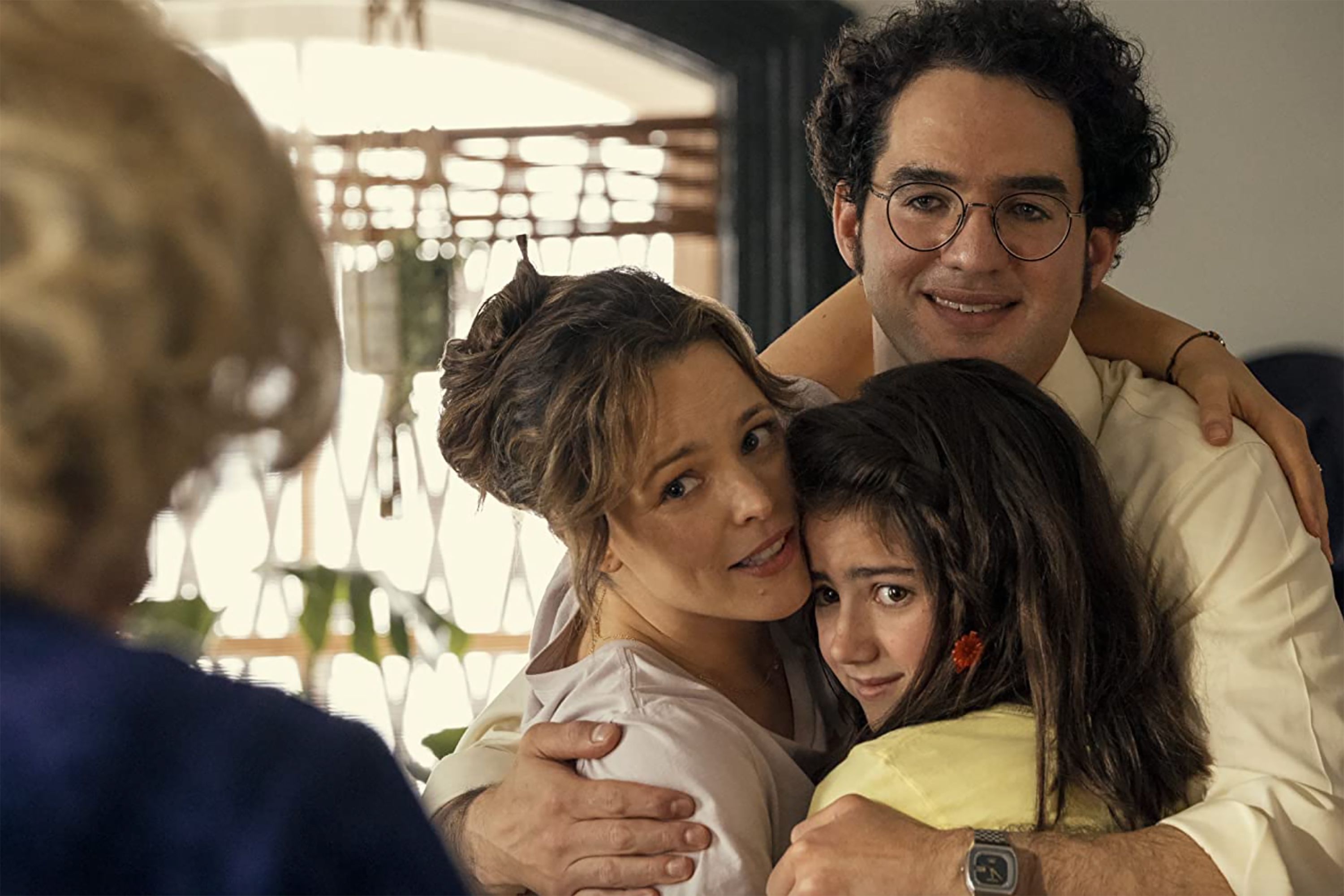Lisa Frankenstein
Posted on February 8, 2024 at 12:43 pm
B-| Lowest Recommended Age: | Mature High Schooler |
| MPAA Rating: | Rated PG-13 for violent content, sexual assault|, language, bloody Images, sexual material, teen drinking, and drug content |
| Profanity: | Very strong language |
| Alcohol/ Drugs: | Teen drinking and drug use |
| Violence/ Scariness: | Extended peril and violence, characters brutally killed, character sees her mother killed by an ax murderer, re-animated corpse, mutilation, murder |
| Diversity Issues: | None |

An uneven mash-up of 80s teen comedy and horror wisely relies on the terrific Kathryn Newton as the title character, a high school girl whose mother was hacked to death by an ax murderer. Her father quickly remarried and they have moved in with her new stepmother, Janet (Carla Gugino), and step-sister, Taffy (Liza Soberano), a sunny-spirited cheerleader.
Screenwriter Diablo Cody famously began her film, “Jennifer’s Body,” with Amanda Seyfried saying, “Hell is a teenage girl.” That is the theme of that film, this film, and even her sweet, beloved screenplay for “Juno.” “Lisa Frankenstein’s” best moments are the ones that play off of the idea that horror and high school are a lot closer than we like to admit. So when Lisa falls for a re-animated corpse of a 19th century musician who died young, she matter-of-factly explains to him that Taffy told her it’s a mistake to try to change a boy, so she is just going to accept him the way he is, rotted, foul-smelling flesh and all.
Well, she does clean him off. When he first staggers into her house, covered with mud from the grave, he looks like a golem. And he does not speak. Cole Sprouse plays a character who is just identified in the credits as “the Creature” (an allusion, like the title, to the original Frankenstein story — remember, Frankenstein is the doctor, not the monster). He worked with a mime to make his non-verbal character as expressive as possible. Once the mud is washed off, as he becomes physically and emotionally re-connected to the world of the living, he gives us a sense of who he was and what he is feeling.
Newton, who memorably starred in the body-switching horror comedy “Freaky,” playing a high school girl whose body is occupied by the 6’5″ deranged serial killed played by Vince Vaughn, brings just the right tone to Lisa, who begins the story still shell-shocked from the loss of her mother and her new home with the superficially welcoming Janet and the just plain superficial Taffy. She finds it comforting to visit the abandoned cemetery in the woods, and that is where she see the grave of the Creature, with the handsome bust on the headstone. She whispers that she wishes she was with him, and somehow that calls him to her. Luckily, her after-school job doing repairs in a dry cleaning ship has given her sewing skills that will come in handy when it turns out the Creature needs some replacement body parts.
Williams relies too heavily on 80s references to make her points. Those who did not come of age in that era will not have the instant emotional connection (or laugh) she is hoping for. The opening credits are a witty mash-up of 80s-era Lisa Frank designs and Victorian silhouette animation. It is a lot of fun to see Newton as Lisa become confident and brave, rocking those 80s, Madonna-influenced outfits, the 80s songs still hold up, and it is entertaining to see some switch-ups on the usual rom-com tropes. It’s the Creature who gets the trying-on-clothes sequence, for example. First-time feature director Zelda Williams (the daughter of Robin Williams) has some strong ideas but the tone wobbles when it tries to straddle.
Parents should know that this is a horror movie and many characters are murdered in a gory manner. It includes sexual references and teen partying.
Family discussion: What 80s touches are most important in this movie? Why was Lisa so drawn to the abandoned cemetery? What do you like best about horror movies?
If you like this, try: “Freaky” and “Young Frankenstein”









